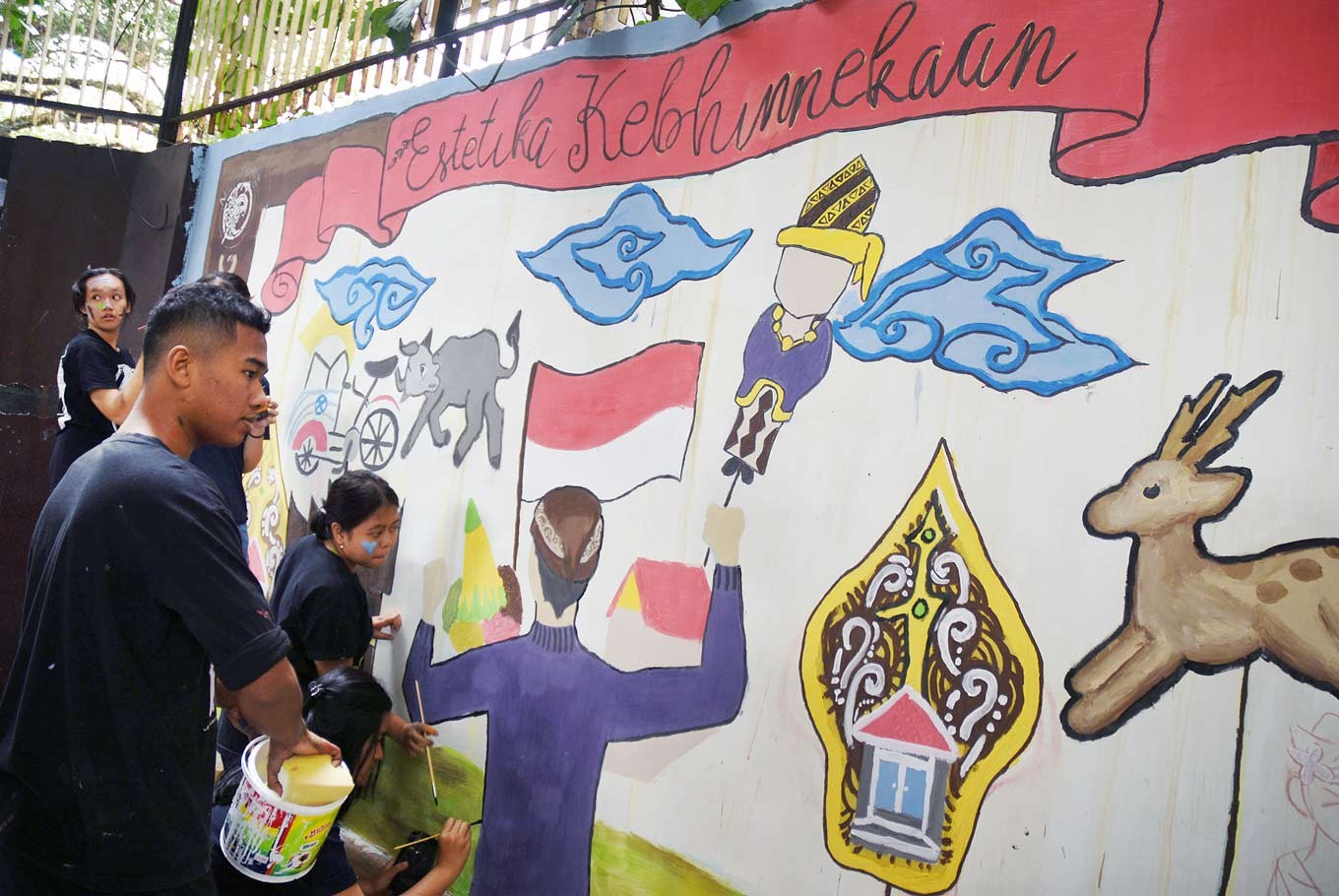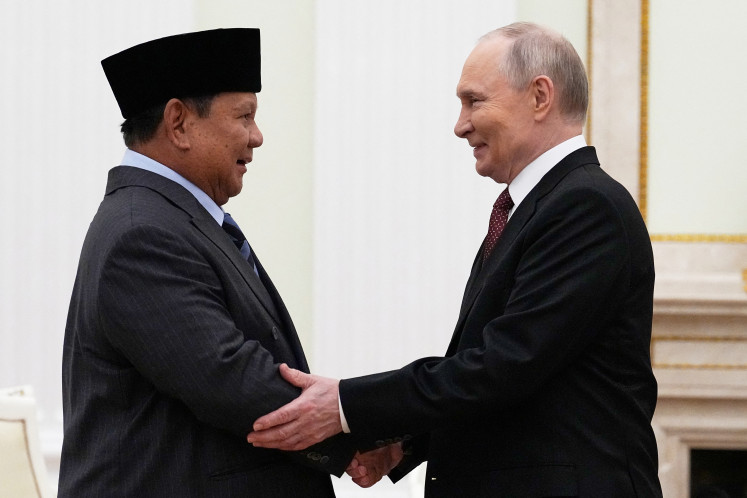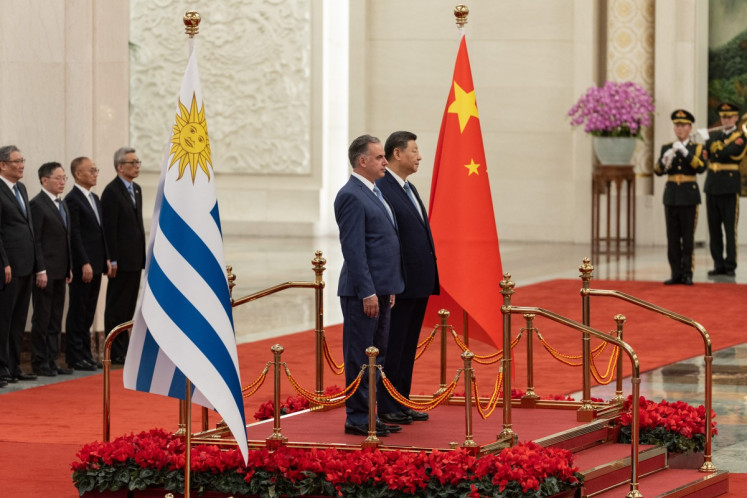Popular Reads
Top Results
Can't find what you're looking for?
View all search resultsPopular Reads
Top Results
Can't find what you're looking for?
View all search resultsEthnic nationalism vs civic nationalism
Civic nationalism respects individual rights, tolerance and diversity. Those values fit well with the democracy that Indonesia embraces, but are incompatible with ethnic nationalism.
Change text size
Gift Premium Articles
to Anyone
T
he rise of far-right political parties in Europe is now a reality. Far-right parties have been spreading in at least 13 member states of the European Union and gaining power in Austria, the Netherlands, France, Germany and Italy, as evident in the results of elections there in the last two years. It is safe to say that ethnic nationalism is emerging in Europe.
Despite the fact that during the election of December 2016, the presidential candidate of Austria’s far-right Freedom Party, Norbert Hofer, lost to Alexander van der Bellen, Hofer drew a respectable 46.7 percent of the vote.
In the Netherlands, the Dutch Party for Freedom (PVV) experienced a rapid rise to power in 2006 when, as a relatively new far-right movement, it gained a greater share of seats in the House of Representatives than other, more established parties. Today, the PVV under the leadership of Geert Wilders has 20 out of 150 seats in the parliament.
In France, the leader of the far-right National Front Party, Marine Le Pen, reached the second round of the presidential election and went on to collect 33.9 percent of the vote.
Alternative for Germany (AfD), which represents the far right in Germany, shifted its focus to domestic security and immigration after nearly 1 million migrants arrived in the country to seek asylum in 2015. Its tone became increasingly nationalistic, populist and racist. Last year, the AfD emerged as the third-largest party in parliament.
The Italian elections last March marked the latest powerful wave in a tidal turn of anti-immigrant and anti-EU sentiment. The far-right League collected 17.69 percent of the vote, up by 4 percent from the previous election. It then established a coalition government with the Five Star Movement.
The influx of immigrants is one of the reasons for the electoral support for the far-right parties in Europe. As of Jan. 1, 2017, the migrant population residing in the EU with citizenship of a non-member country had reached 21.6 million, 4.2 percent of the population of the 28 EU member states. In the meantime, European countries are still struggling to absorb the roughly 1.8 million sea arrivals since 2014.
Though Europe’s far-right parties differ in important respects, they are motivated by a common sense of mission: to save their homelands from what they view as the corrosive effects of multiculturalism and globalization by creating a closed-off, ethnically homogeneous society. Alongside anti-immigration, far-right parties have been associated with antisemitism and Islamophobia. The parties are increasingly determined to gain power through legitimate electoral means.
In general, the European population opposes immigration for security, economic and cultural reasons. They are in favor of the far-right parties because of their common grievances. The anti-immigrant sentiment is the root cause of the surging ethnic nationalism. This variant of nationalism is a manifestation of the process of reimagining communities based on ethnic supremacy.
By reconstructing and reimagining new political communities, they believe that a nation should be defined in terms of ethnicity. They perceive themselves as nationalists. The central theme of ethnic nationalists is that “nations are defined by a shared heritage, which usually includes a common language, a common faith and a common ethnic ancestry”.
The immigrants are considered “outsiders” since they do not speak the same language, embrace the same faith or come from the same ethnic ancestry.
Contrary to what is happening in Europe, it is almost impossible for Indonesian people to evoke an “ethno-state” based on ethnic nationalism. In a diverse nation like Indonesia, ethnic diversity is given. Historically, the nation and state of Indonesia was built by consensus among people of different ethnicities, languages and religions. Nationalism in Indonesia is therefore classified as “civic-nationalism”.
Civic nationalism is conciliatory and forward-looking. This type of nationalism appeals to universal values, such as humanity, freedom and equality. Civic nationalism respects individual rights, tolerance and diversity.
Those values fit well with the democracy that Indonesia embraces, but are incompatible with ethnic nationalism.
Furthermore, Indonesians believe the attitude of ethnic nationalism toward immigrants violates the international conventions on the rights of asylum-seekers. Anyone who abides by a country’s laws can become a fully fledged citizen and contribute to the vitality of his or her adopted country. Inclusion of “the outsiders” does not destroy national identity. On the contrary, it enriches it with new ideas and behavior as long as social integration programs are well planned. Indonesia traditionally respects immigrants and asylum seekers.
Indonesia is now home to almost 14,000 refugees and asylum seekers. So far, with all its limitations, the government can handle them. Most Indonesian people are sympathetic to the refugees who come from Afghanistan, Myanmar, Somalia, Sri Lanka and other countries. Humanity has been the basis for Indonesia’s policy on migration.
Indonesia is lucky enough in not having far-right political parties. No party contesting the 2019 election has so far campaigned in favor of nationalism based on ethnicity.
Civic nationalism should be nurtured and empowered for a better future of Indonesia. In particular, it is very relevant when this country celebrates its 73rd anniversary of the independence.
***
The writer is Indonesian ambassador to the Holy See.











